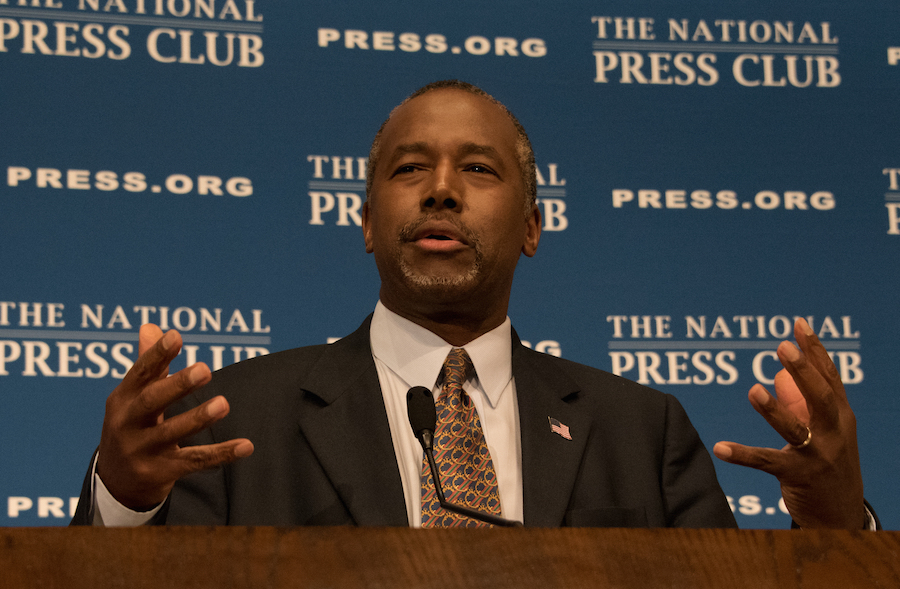The U.S. Department of Housing and Urban Development announced on Thursday that Secretary Ben Carson approved a disaster recovery plan to help Floridians recover from Hurricane Irma.
In November, HUD allocated $616 million to Florida to support long-term recovery efforts and now, the state will soon see those funds.
The Florida action plan required grantees to develop a recovery program informed by local residents and will be funded through HUD's Community Development Block Grant for disaster recovery. The state then identified various housing and economic development recovery needs that arose from Hurricane Irma and designed several programs to address unmet needs and assist in the recovery process.
“It’s great news that we were able to secure critical funding from HUD that will directly benefit the families who were most affected by last year’s storms,” Governor Rick Scott said. “This $616 million will enable communities to build new affordable housing and to replace homes lost in the wake of last year’s hurricane season.”
Carson said that HUD will continue to play a role in Florida’s relief efforts.
“This funding is part of the Trump administration’s continued commitment to helping the residents of Florida impacted by Irma to recover and rebuild their homes and their lives,” Carson said. “As we move along the road to recovery, HUD will be right by Florida’s side to help in any way we can to make the state whole again.”
“Through this program, we can continue to move forward with long-term affordable housing solutions for displaced families as well as provide grants to businesses who were impacted by the storm," Scott said. "We won’t stop working until all of Florida’s communities have fully recovered,”
These are the programs designed to assist recovery efforts:
- Housing Repair Program ($273.3 million) will rehabilitate housing occupied by low- and moderate-income families that was damaged by Hurricane Irma. The Florida Department of Economic Opportunity (DEO) will centrally manage the following activities on behalf of eligible homeowner and rental property owner applicants:
- Repairs to, reconstruction or replacement of housing units damaged by Hurricane Irma, which may include bringing the home into code compliance and mitigation against future storm impacts, including elevation.
- The completion of work to homes that have been partially repaired.
- Repairs to, or replacement of, manufactured homes impacted by Hurricane Irma.
- Temporary housing assistance based on individual household needs and their participation in the Housing Repair Program.
- Workforce Affordable Rental New Construction Program ($100 million) will facilitate the creation of affordable rental housing though a partnership with DEO and the Florida Housing Finance Corporation by leveraging CDBG-DR funds with low-income housing tax credits as well using CDBG-DR funds for zero-interest loans for smaller developments.
- Land Acquisition for Affordable Workforce Housing ($20 million) provides funding for the purchase of land for development into affordable housing, especially in areas of the state where the scarcity of developable land makes it difficult to construct properties that can be rented at an affordable rate for the community’s workforce.
- Voluntary Home Buyout Program ($75 million) encourages risk reduction through the voluntary purchase of residential properties in high flood-risk areas. Communities that participate in this program are encouraged to develop plans for the reuse of the acquired land to further reduce flood risk and/or serve as a recreational space for the public.
- Recovery Workforce Training Program ($20 million) will bolster workforce training throughout the state with the goal of growing the skilled labor force needed to support the long-term recovery, primarily in the housing construction field.
- Business Recovery Grant Program ($60 million) provides funding for eligible business owners who are seeking reimbursement for the cost of replacing equipment and inventory damaged by Hurricane Irma.
- Business Assistance to new Floridians from Puerto Rico ($6 million) provides business plan guidance, accounting services, licensing information and other resources to support assistance in assimilating to the business climate in the State of Florida.
Last month, HUD allocated an additional $707 million of Community Development Block Grant Disaster Recovery funding to Florida for unmet needs, infrastructure and mitigation purposes.
HUD said it plans to issue requirements governing those funds, shortly. It also expects Florida, along with other states, to submit required plans addressing fund usage.
Earlier this month, HUD announced it approved a disaster recovery plan to help Texans recover from Hurricane Harvey.






